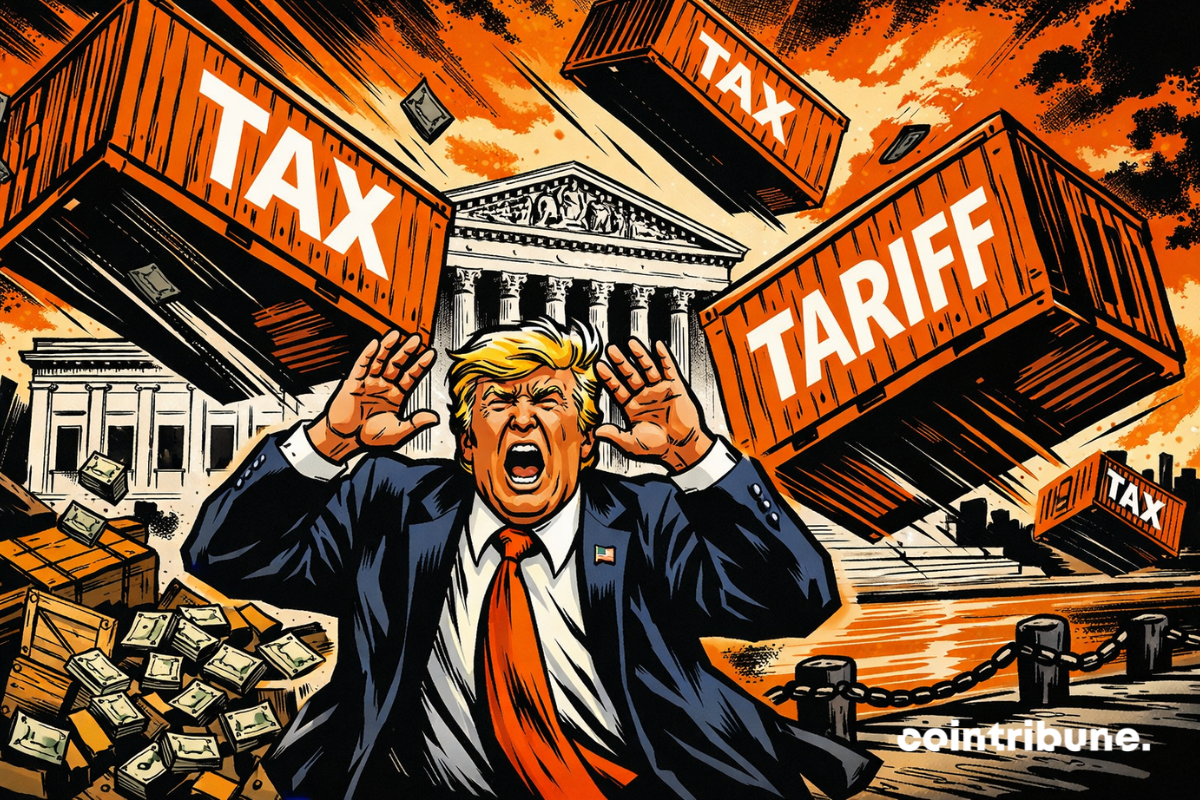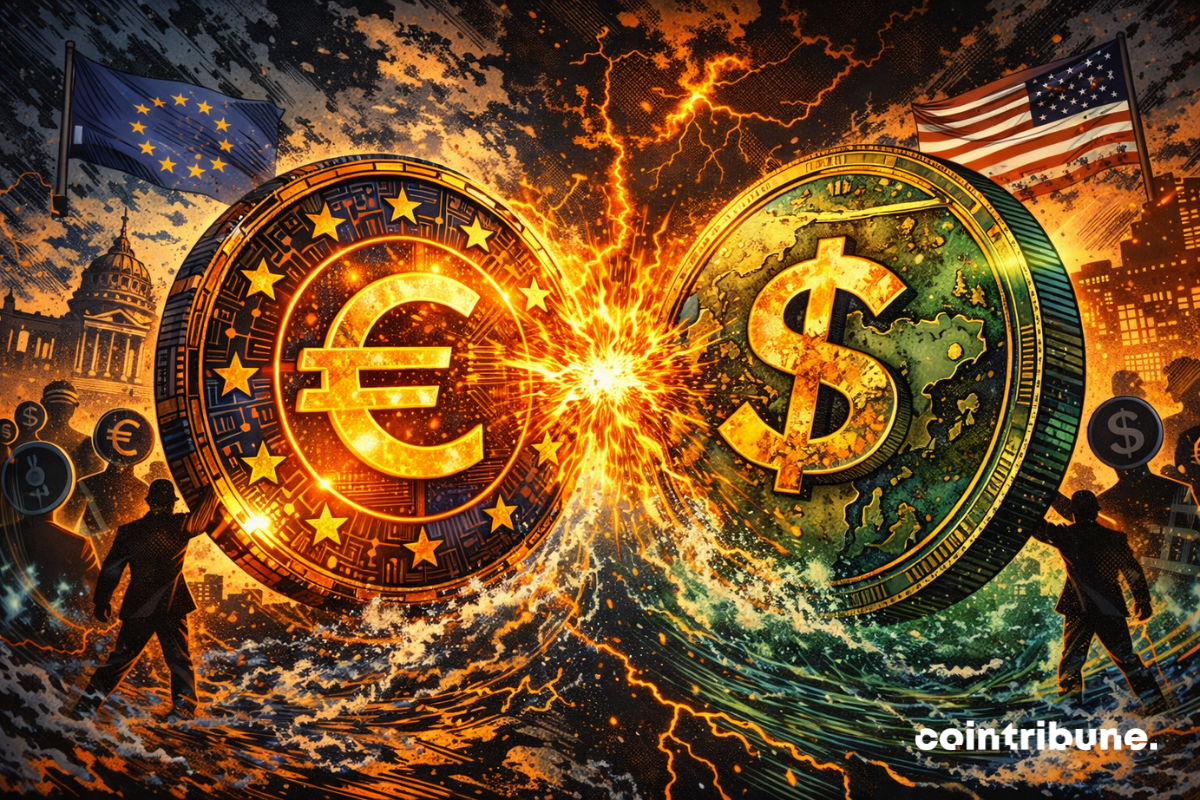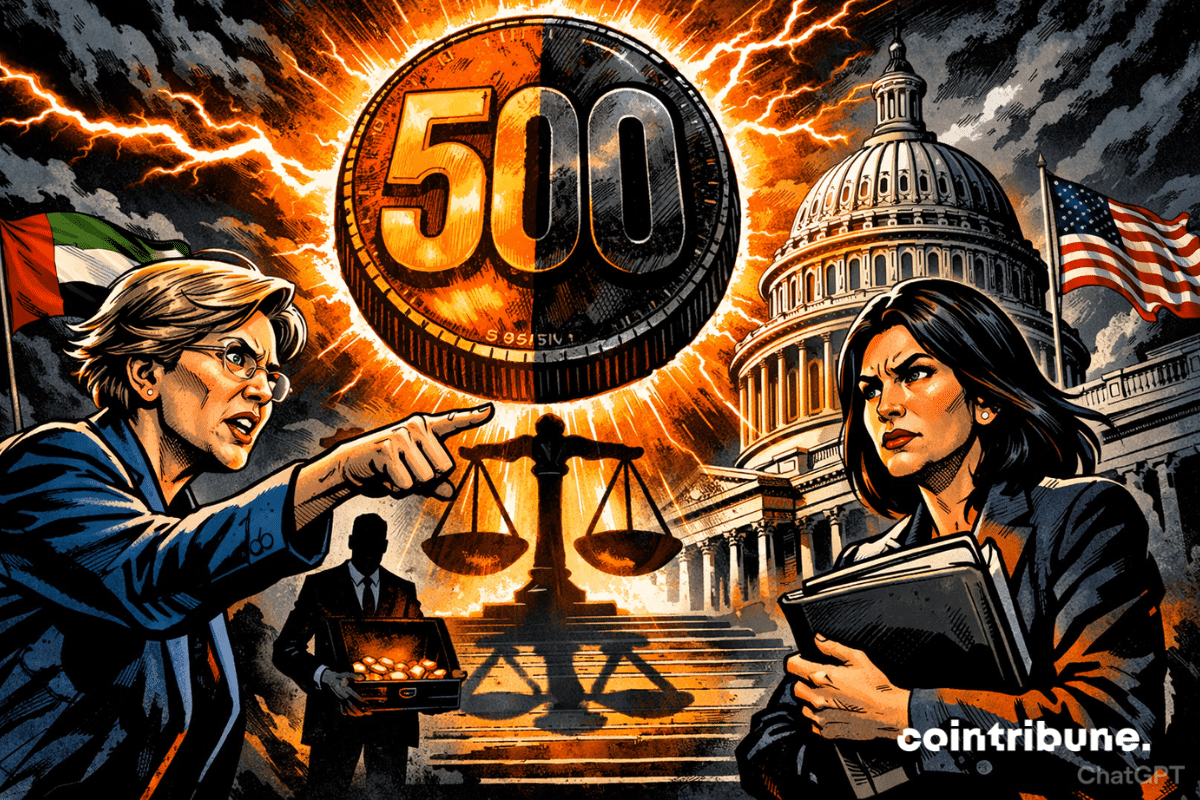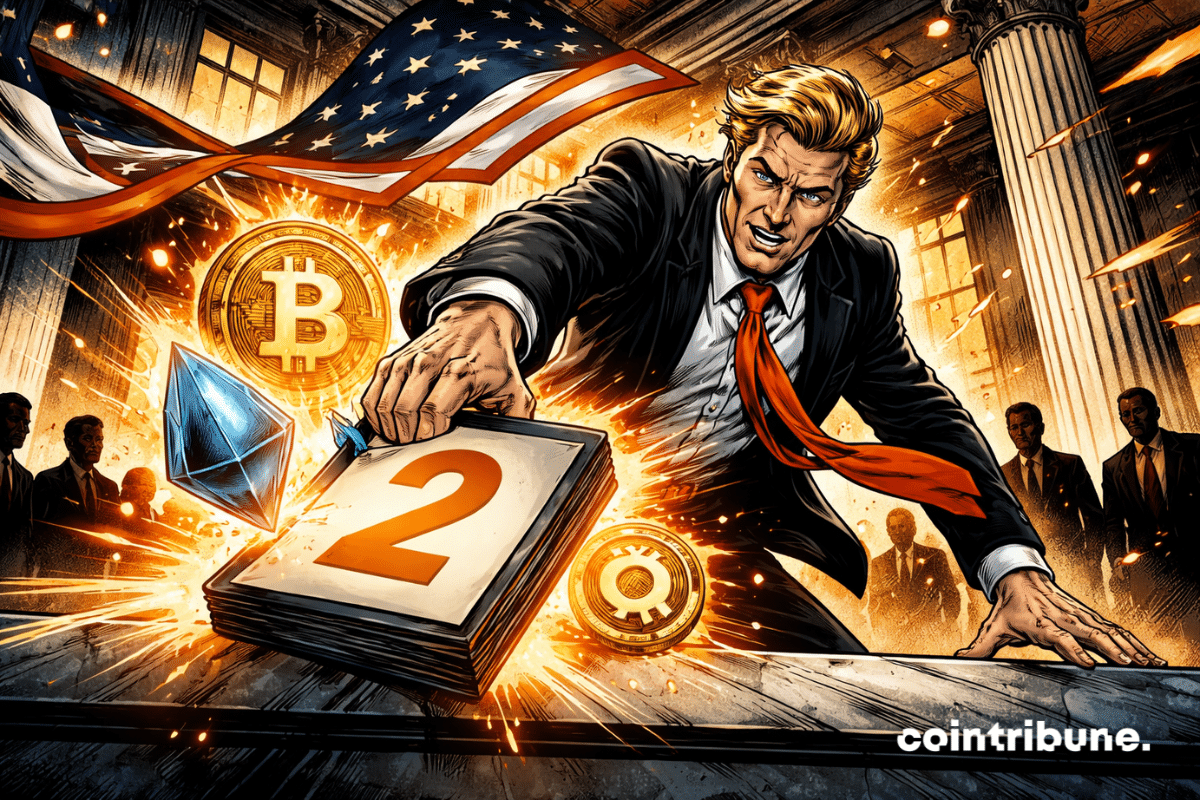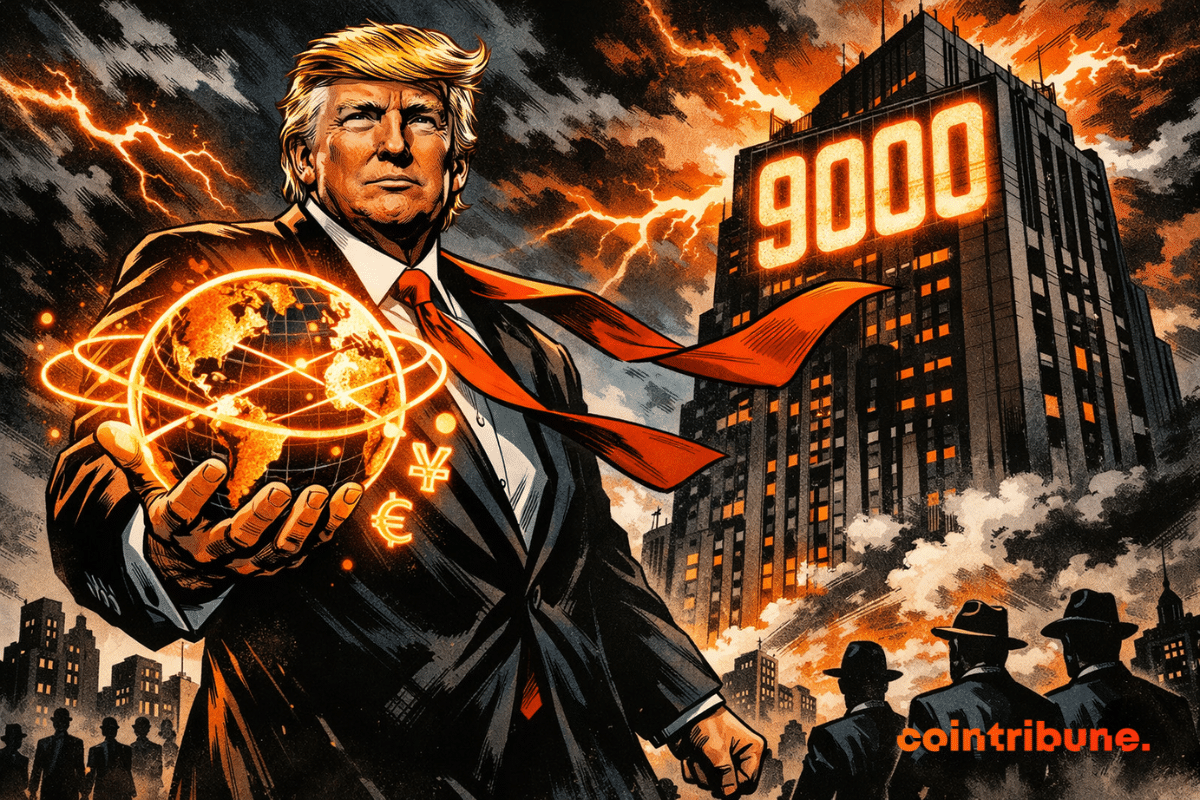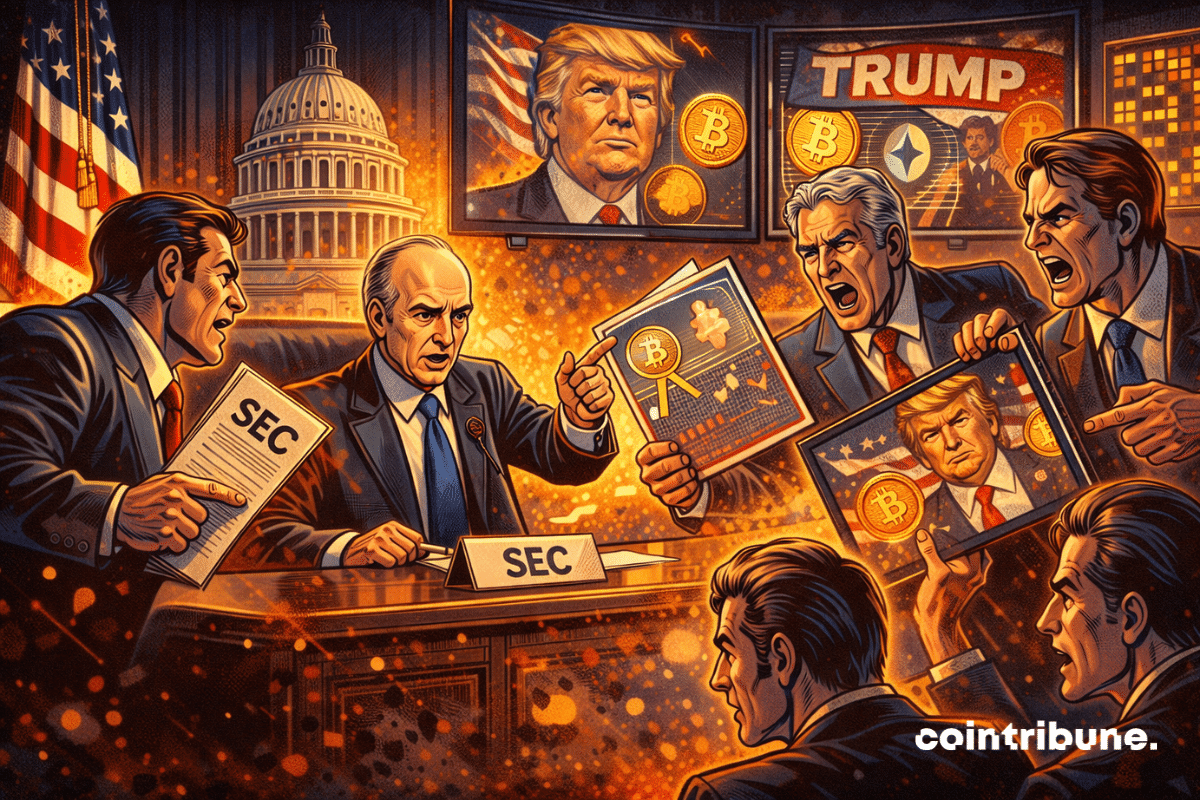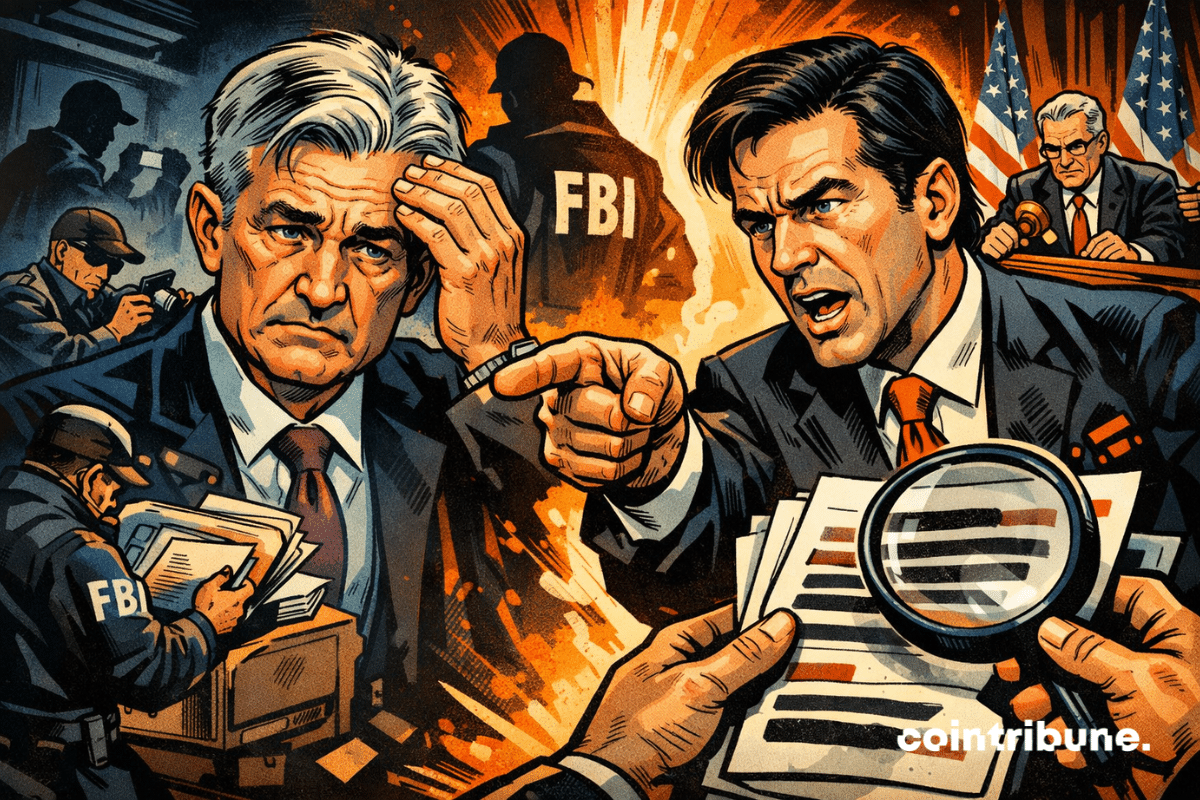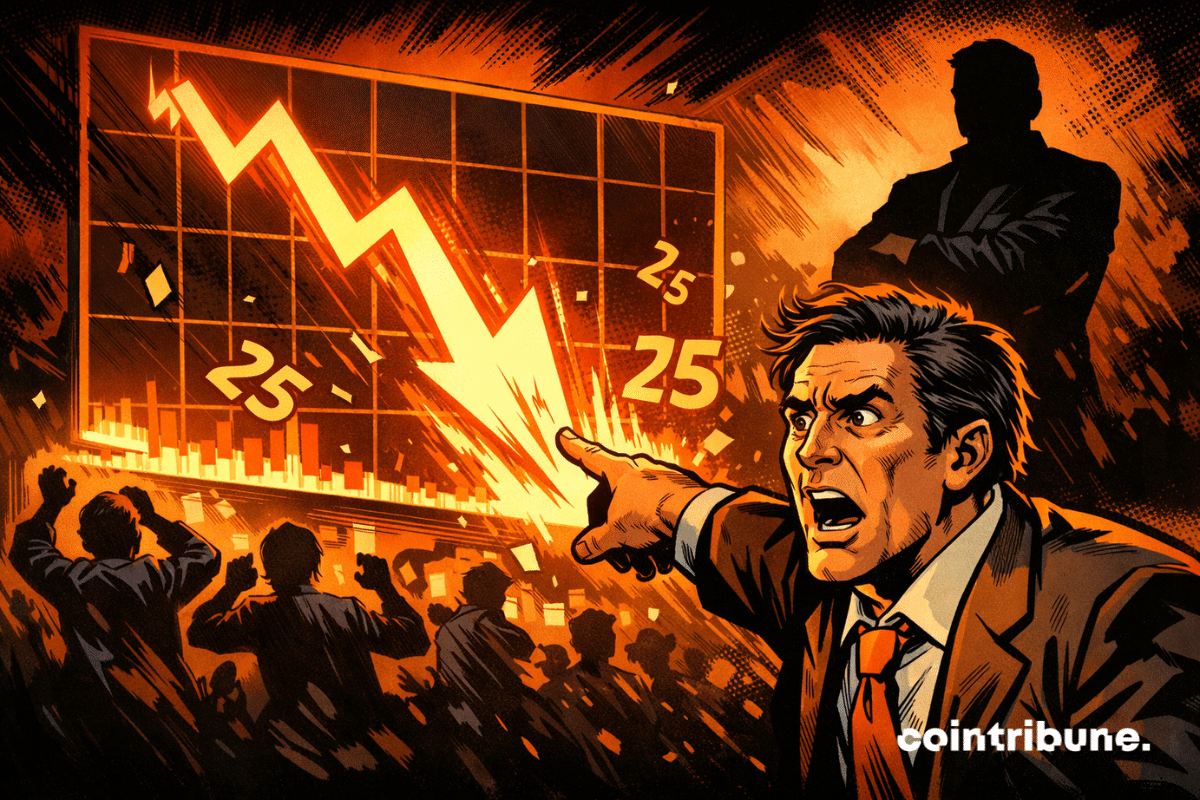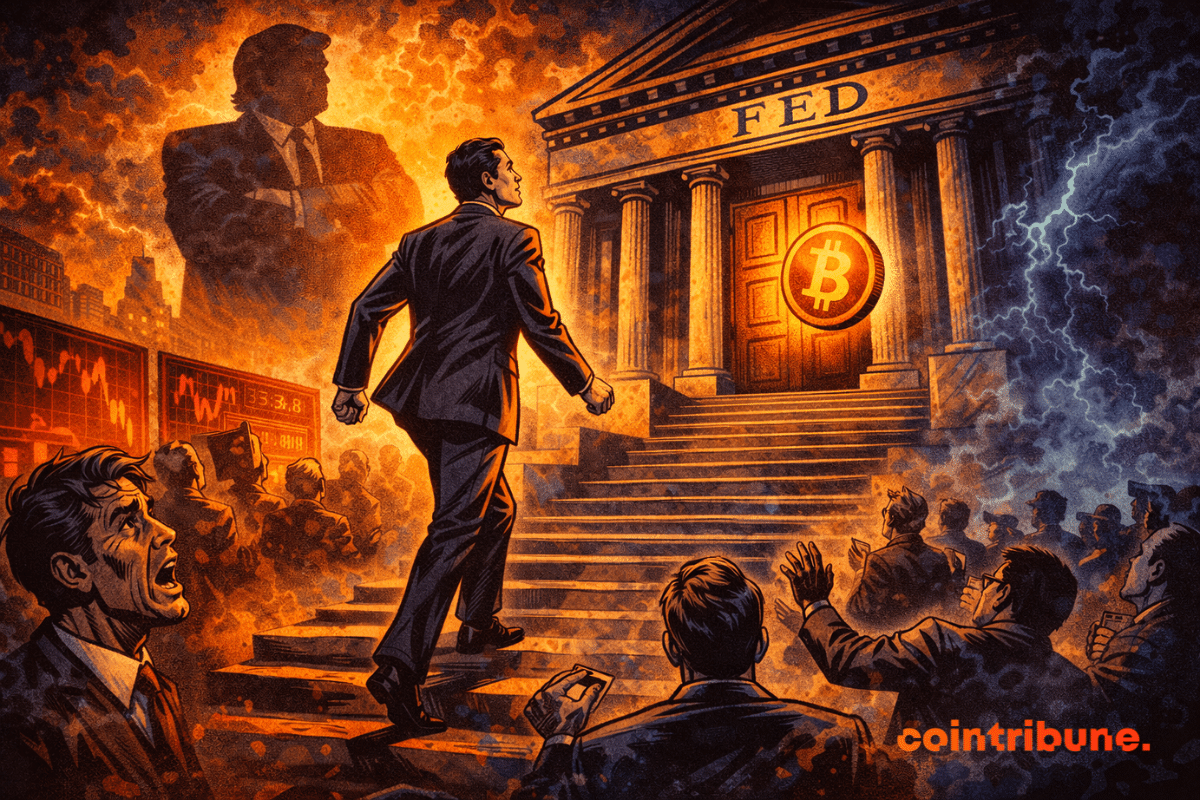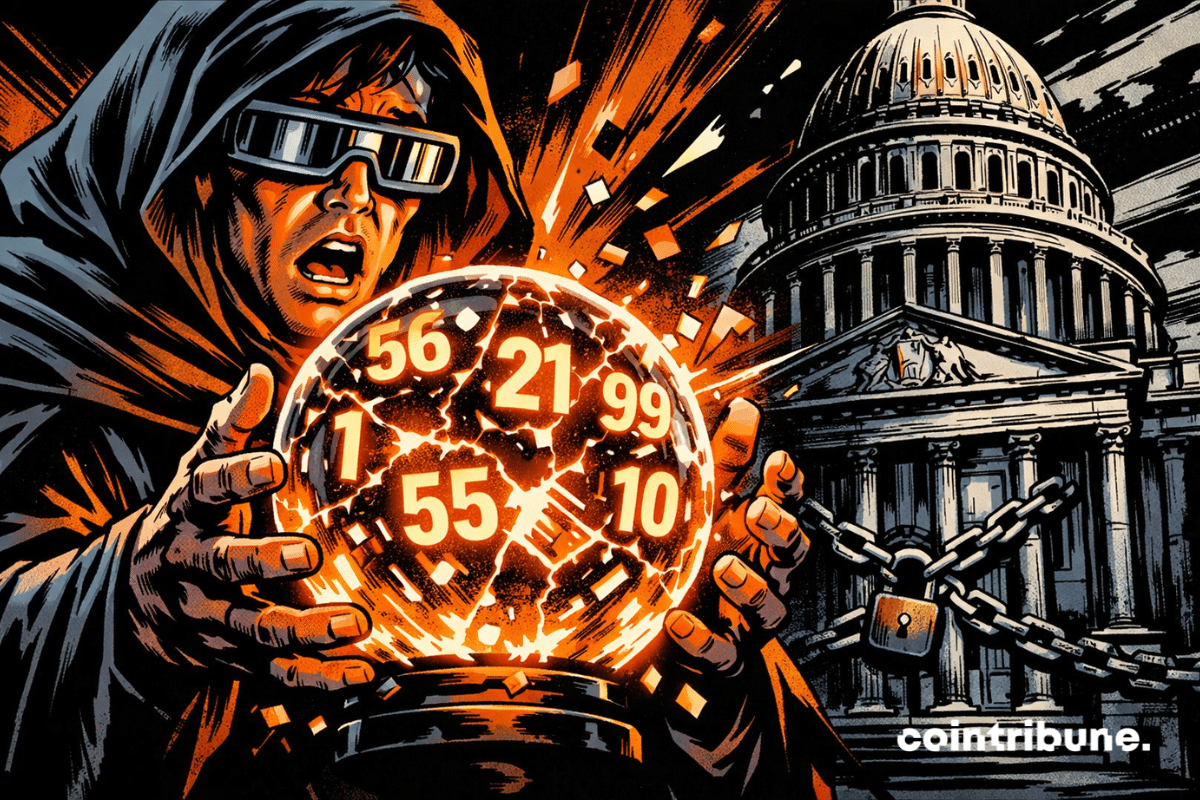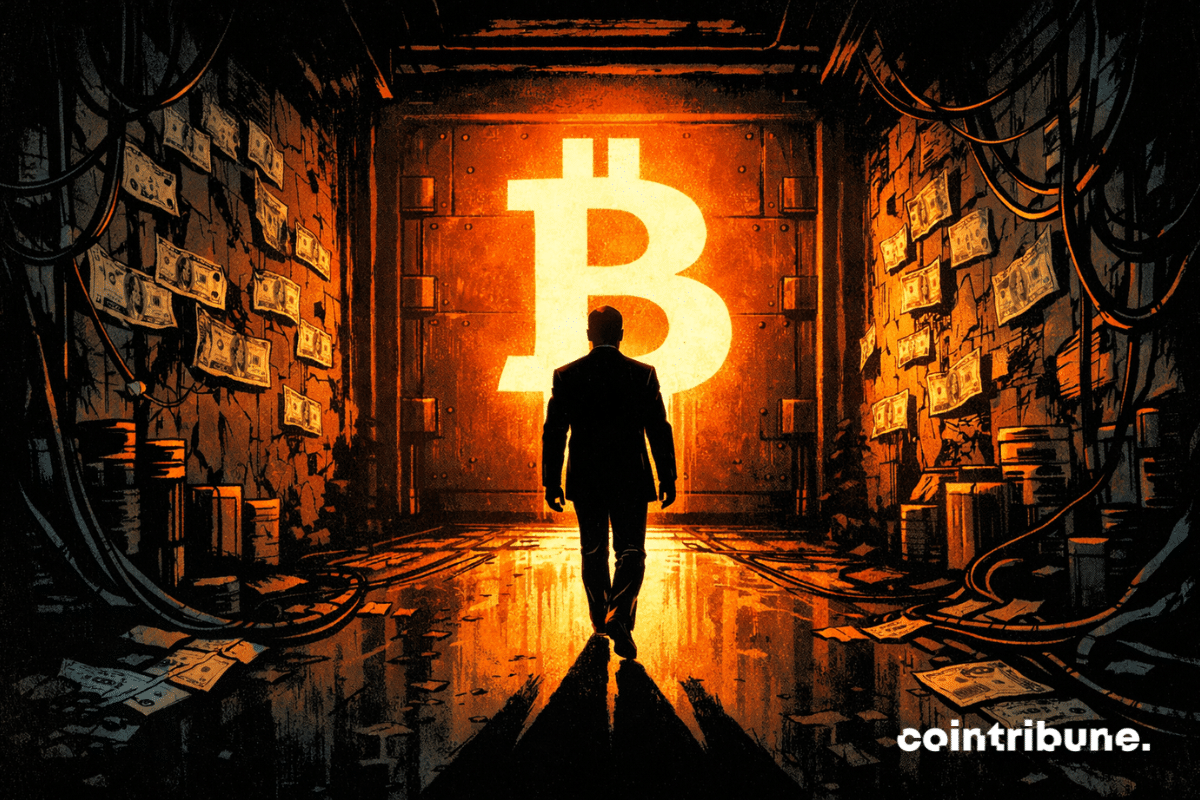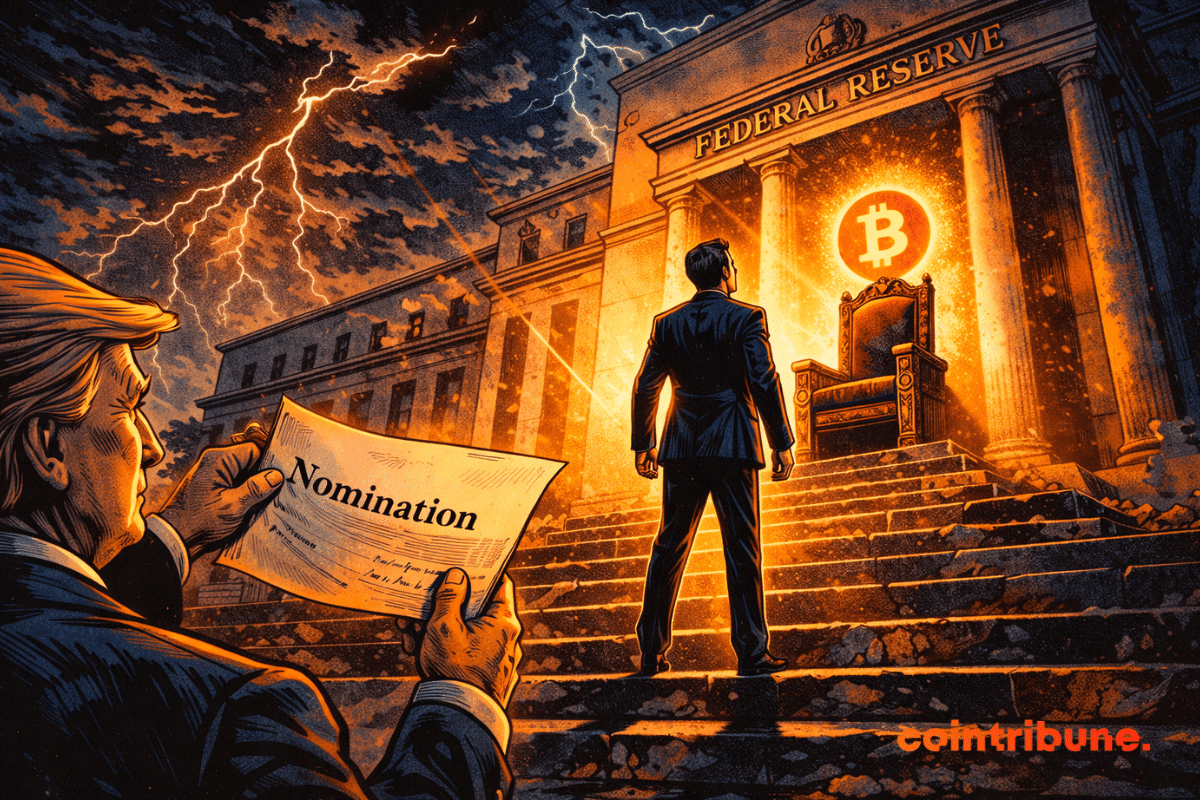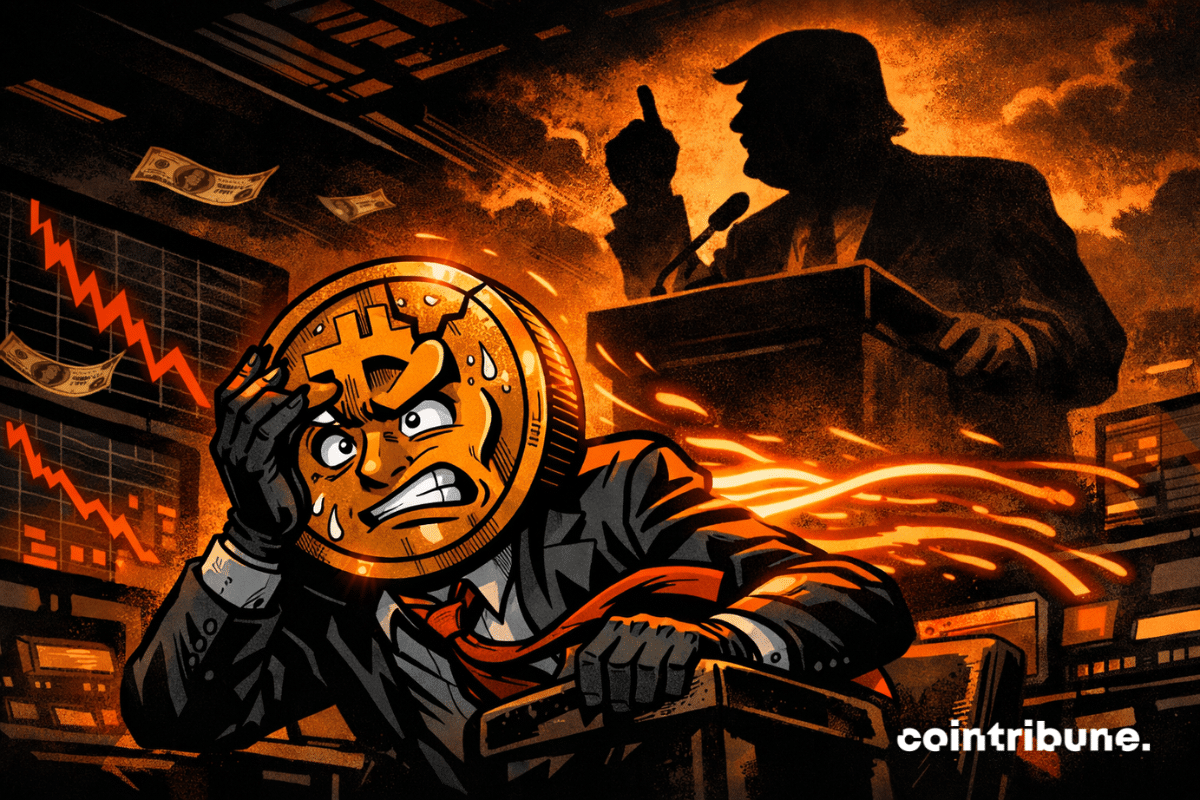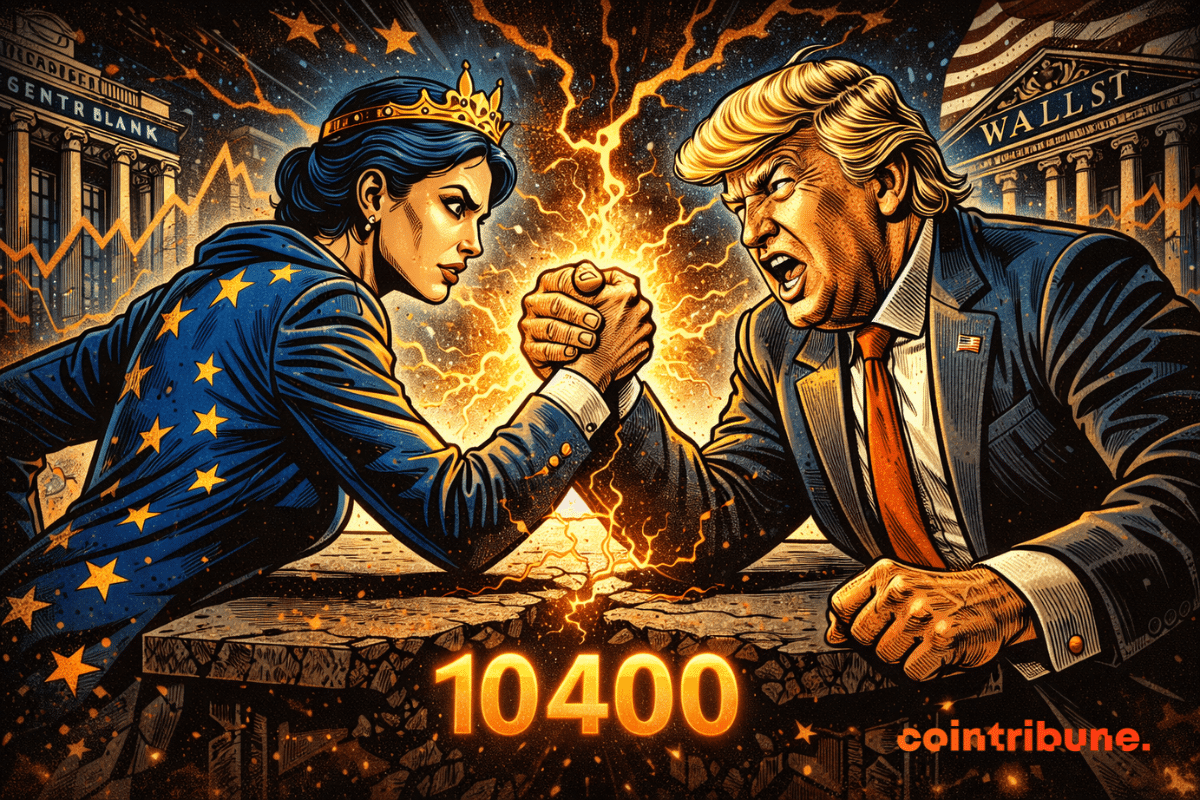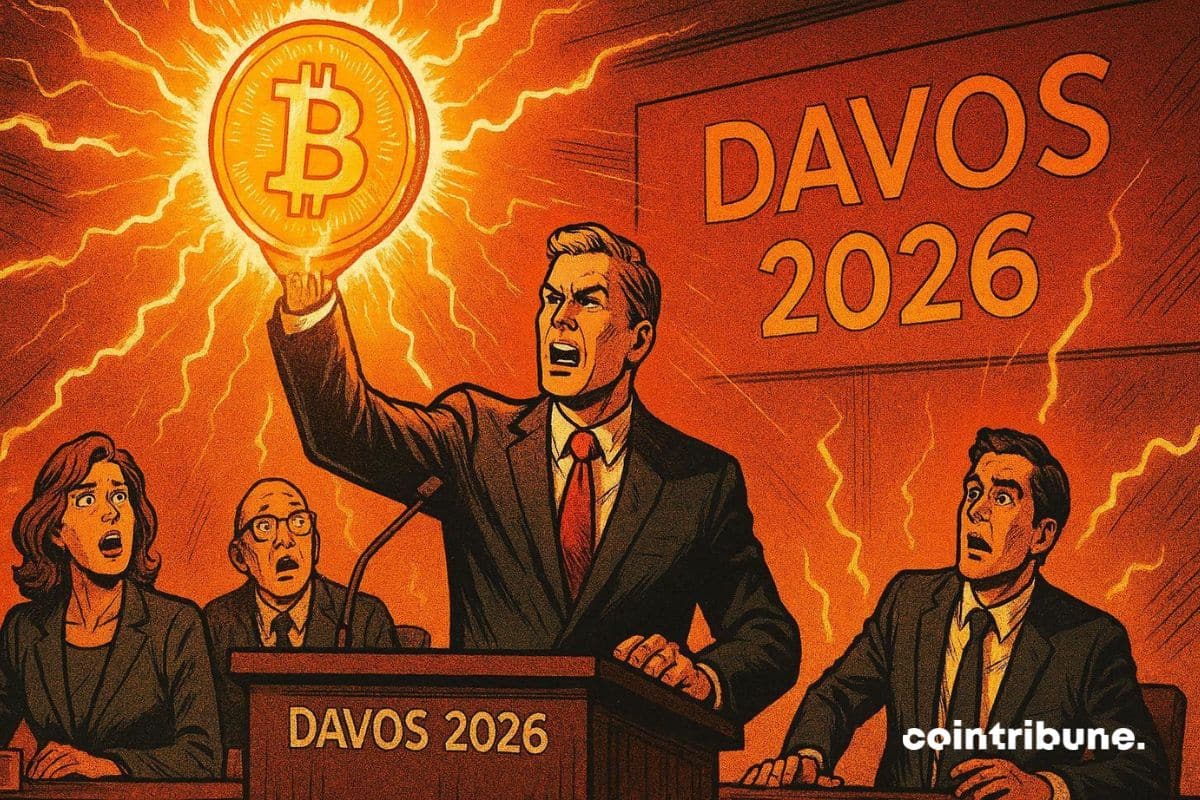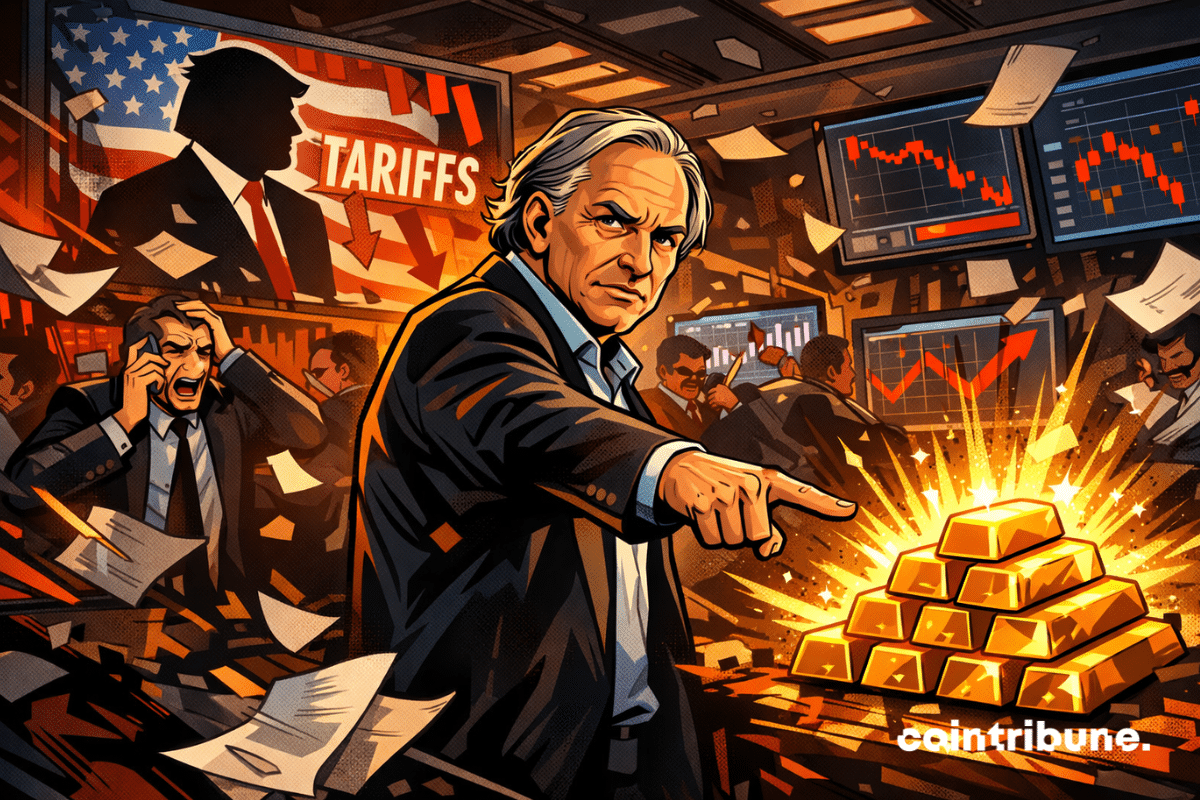The CEO of Anthropic, Dario Amodei, has just stepped up against an unprecedented decision by the Trump administration. Washington labeled his company as a "risk to the American defense supply chain," paving the way for an unprecedented legal battle between a major American tech firm and its own government.
Donald Trump
Can crypto become a tool for geopolitical reconstruction? Indeed, the "Board of Peace" created by Donald Trump is studying the hypothesis of a dollar-backed stablecoin to support efforts in Gaza. In a territory where the banking system is largely destroyed and financial flows remain unstable, this approach places cryptos at the heart of an unprecedented debate mixing finance, regulation, and international influence.
Donald Trump raises tariffs to 15%. The decision, announced in a tense electoral atmosphere, revives the American protectionist line and puts trade policy back at the center of the economic debate. Traditional markets reacted. Cryptos, however, remained stable. This contrast raises questions about the real sensitivity of the crypto market to political and trade shocks.
Washington opens a new explosive trade front. After being overruled by the Supreme Court on his use of emergency powers, Donald Trump immediately announced a 10% global tariff on imports. This decision renews trade tensions at a time when markets remain particularly sensitive to political shocks. Between institutional confrontation, alternative legal strategy, and increased volatility risk, this episode could have effects far beyond U.S. borders.
The United States Supreme Court has just struck hard. In a rare decision, it declared illegal the international tariffs imposed by Donald Trump, removing a trade tool he wielded as a geopolitical weapon. A judicial slap that could reshuffle the cards of his economic policy. But how far will this confrontation between the White House and the judiciary go?
Washington throws its dollar stablecoins onto the Old Continent. Berlin says no. The Bundesbank draws its digital euro and its own stablecoins. The currency war is declared.
Two Democratic senators step up. Elizabeth Warren and Andy Kim demand a thorough investigation into Abu Dhabi's massive investment in World Liberty Financial. This foreign participation in the Trump family's crypto business raises disturbing national security questions.
Donald Trump's empire continues to expand its footprint in the crypto universe. Trump Media has just filed two new exchange-traded funds focused on major cryptocurrencies with the SEC: a Bitcoin-Ether ETF and a Cronos ETF. This offensive comes as the market goes through a period of marked turbulence.
Crypto: Trump wants to disrupt global transfers with an international exchange platform. All the details in this article!
The SEC under Atkins lets go of Binance and Sun, coincidentally just as Trump and his crowd are feasting on WLFI… Coincidence or nepotism? The defrauded voters want more.
The standoff over the succession at the head of the Federal Reserve intensifies. While a Republican senator blocks any progress as long as the investigation targeting Jerome Powell is not completed, the Treasury Secretary proposes a bold strategy: why not fight both battles at once? A political chess game that could redefine the Fed's future.
Markets may be mispricing how sharply U.S. interest rates could fall if Kevin Warsh becomes the next chair of the Federal Reserve. A new forecast points to rapid and sizable rate cuts—an outcome that could weaken the dollar and reignite risk assets, including Bitcoin.
Billions unlocked in emergency: Congress attempts to revive the American economy. Discover the details in this article.
Trump finally places his pawn at the Fed: Kevin Warsh. Monetary hawk, he promises discipline and rigor… While Wall Street and crypto collectively hold their breath.
A new Wall Street Journal investigation raises questions about a $500 million crypto deal involving Donald Trump and a senior member of the United Arab Emirates royal family. According to the report, entities linked to Trump sold nearly half of the Trump family’s crypto venture just days before his second inauguration, a transaction that was not publicly disclosed at the time. Lawmakers and ethics experts are now examining whether the deal created conflicts of interest connected to later U.S. policy decisions.
Crypto investment products suffered steep losses on Thursday as a broad sell-off swept through global markets. The total crypto market value fell roughly 6%, prompting one of the largest single-day fund outflows of the year. Bitcoin and Ether investment products bore the brunt of the decline as investors moved decisively to reduce risk.
As the US government slides into partial paralysis, crypto prediction platforms Polymarket and Kalshi find themselves at the heart of a troubling controversy. Their contracts, meant to allow traders to bet on this event, reveal major flaws in their formulations.
The appointment of a new chairman at the head of the Federal Reserve is never trivial. This Friday, Donald Trump announced his intention to entrust the reins of the Fed to Kevin Warsh, a former governor critical of current monetary policy. Such a strategic choice, interpreted as a possible ideological shift, is already shaking up financial and crypto markets. As Jerome Powell’s term comes to an end, the Warsh hypothesis reshapes monetary expectations and power balances.
In Washington, Trump is plotting his revenge: a former hawk ready to embrace Bitcoin and bring the Fed back into line, while Powell counts down the hours.
While the Fed is buying time, the dollar is nosediving. And while Trump congratulates himself, bitcoin is smiling. The global economy, much less so...
Global markets are entering a concentrated period of macroeconomic risk that could shape sentiment into early February. Five key U.S. economic releases are scheduled for January 27, increasing pressure on already cautious investors. Crypto markets remain highly sensitive in this environment, with Bitcoin still absorbing the majority of capital flows.
A South Dakota bill aims to authorize public funds investment in Bitcoin. All the details in this article.
When Washington argues, crypto collapses! Between shutdown threats, a thunderous Trump and triumphant gold, bitcoin discovers it is not truly a golden refuge.
Trump acts tough with Europe, but financiers of the Old Continent are sharpening their response: a stock market exodus that could make him swallow his "America First."
Can a simple meme trigger a frenzy in the crypto market? That's exactly what a White House post showing a penguin alongside the US president caused. Within hours, the memecoin PENGUIN, unknown the day before, soared in value by more than 350 times. With no announcement, no news, this Solana token attracted a massive speculative wave, illustrating once again how the attention economy brutally reshapes market dynamics.
Donald Trump accuses JPMorgan of having closed his accounts for political reasons and demands 5 billion dollars before the Florida courts. By directly targeting CEO Jamie Dimon, the president reignites the explosive debate on "debanking," a practice that fuels tensions between the political and financial spheres. This case questions the neutrality of major American banks. While Trump denounces ideological exclusion, JPMorgan, on its side, rejects any accusation of discrimination.
Davos 2026: Ripple and Trump unite to transform the United States into a crypto empire. All the details in this article.
At Davos 2026, Scott Bessent reaffirms Trump’s Bitcoin vision: a strategic reserve to assert American crypto leadership. But behind this reaffirmation, doubt persists. Is it a show of strength or an admission of a lack of real progress in crypto innovation?
Ray Dalio warns of uncertainty in global markets as U.S. economic policies shift. He notes rising stress in currencies and sees gold as a reliable hedge.
Trump Airdrop: a crypto without cash, but with real benefits. We deliver all the details in this article.




